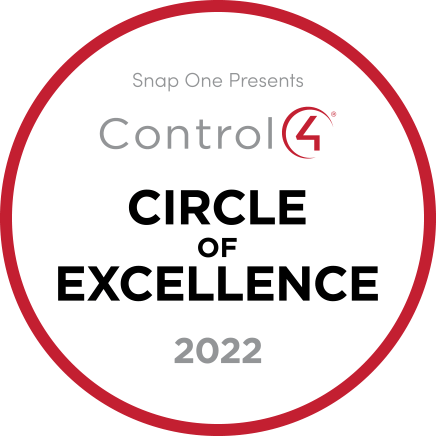People with Dementia
Helping you in your home
Dementia challenges
Dementia presents numerous challenges for individuals with the condition, their families, and caregivers. These challenges stem from cognitive decline, behavioural changes, and the impact on daily life.
Following are just some of the common challenges associated with dementia:
- Short Term Memory
- Purposeful Wandering
- Confusing Day and Night
- High Risk of Falls
- Long Term Memory
Positive outcomes for people with dementia
Automated Spaces offers a variety of Independent Living Technology solutions that can provide a broad range of positive outcomes for those living with dementia challenges:
- Increased Independence
- Reduced Risks of Falls
- Reduced Risk of Long Lie
- Improved Dignity
- Maintenance of Personal Health & Hygiene
- Reduced Risk of Major Flooding Damage
- Create a Sense of Time of Day/Daily Routine
- Reduced Power Consumption
- Reduced Risk of Walking with Purpose late at night
- Reduced Sense of Loneliness/Social Isolation
- Reduced Anxiety & Stress
- Increased Personal Safety
- Increased Confidence
- Reduced Risk of Fires
Some of our Independent Living Technology solutions also can provide the following outcomes for those caring for people with mobility challenges:
- Reduced Demand on their Time
- Increased Quality of Time with Family Member/Friend
- Reduced Stress/Anxiety
- Faster Response to Emergency
If you would like to know more about how we can provide these outcomes
Independent living technology solutions for dementia challenges
Automated Spaces can provide the following Independent Living Technology solutions for people with dementia:
- Fall detection sensors
- Room activity monitoring
- Nudges
- Water damage prevention
- Smart mains power sockets & adaptors
- CCTV curtilage monitoring
- Door status monitoring
- Smart intruder alarm
- Music Therapy
- Smart door locks
- Door/window contact sensors
- Electronic shared calendar
- Schedule based automations
See the following sections for further details about the independent living technologies for those people with dementia.
You can also download our
dementia brochure
by completing the form at the bottom of this page.
Fall detection sensors
Fall detection sensors with push notification/email alerts sent to family members or informal care providers. Fall sensors are ceiling mounted meaning the person in the home doesn’t need to use a wearable fall alarm device or be able to reach a phone to summon assistance.
Useful for those likely to fall and also might forget to put on wearable fall detection sensors.
Room activity monitoring
Sensors that can detect activity in rooms and identify any worrying patterns/trends e.g., an alert can be generated if no presence is detected in the kitchen at certain times of the day such as breakfast, lunch or dinner, etc.
This alert could then trigger a local 'Nudge' to encourage the resident to try to help themselves. Alternatively, the alert could be used to notify family members, carers or care service providers e.g., a push notification or email notification could be sent to nominated relative, carer or care service provider.
Useful for those memory issues who might forget to eat or drink at regular intervals throughout the day.
Nudges
Alerts generated by the activity monitoring, in the right circumstances, can trigger a suitable action on the smart home hub to support an individual to help themselves in the first instance e.g., if someone hasn’t been in their kitchen by 10am in the morning, then they likely have not had breakfast.
Rather than sending an alert to a third party to step in and check on the person, we can trigger an audible ‘Nudge’ announcement played over a speaker in the home to encourage the person to consider having breakfast.
With the added reassurance that if the person doesn’t respond to the ‘Nudge’, then after an appropriate amount of time, this issue will then be escalated to a third party for them to take the required action.
Useful for those that forget things and would like support of a relevant audible suggestion.
Water damage prevention
A sensor that detects water usage and leaks, placed on the mains water pipes for the property, combined with sensors that detect if the bath water is overflowing and whether there is occupancy in the room.
With the ability to automatically switch off the mains water supply, issue an audible alert in the home and send a push notification alert.
Useful for those that occasionally forget that they have left a tap running when filling a bath and after having left the room.
Smart mains power sockets & adaptors
Smart mains power adaptors who's on/off status can be remotely checked; the adaptors can also be remotely switched on or off; or using a smart hub we can activate a timer that automatically switches off power after a certain amount of time.
Smart mains power wall sockets that can be remotely switched on or off.
Useful for those people who are prone to suffering from short term memory loss issues and might forget if they have switched on an appliance plugged into a mains power socket.
CCTV curtilage monitoring
CCTV tracking if the resident has left the curtilage or boundary of the property, whilst leaving any of the doors open/unlocked and or Intruder Alarm unarmed, in the early hours of the morning.
If so, sending a push notification and/or email alerts to family members, informal carers or care provider service.
Useful for those that occasionally prone to walking with purpose.
Door status monitoring
Warning announcements played from speaker located close to any exit doors (depending on time of day), to prompt if person should be leaving, with optional push notification/email alerts sent to family members or informal care providers.
Useful to reduce incidents of purposeful walking outside late at night or for those struggling with decision-making.
Smart intruder alarm
Smart intruder alarm that automatically, when the resident goes to bed, checks all windows and doors around the home are closed, if required closes automated doors/windows, turns off all the lights, TVs and radios around the home, before arming the night-time mode of the intruder alarm.
Useful for those that might forget to check their home is secure and intruder alarm is armed before going to bed.
Music therapy
A mounting body of evidence suggests that music therapy can be useful in addressing neuropsychiatric and behavioural symptoms in people with dementia. Playback of curated playlists of favourite music from multi-room audio solutions can easily be activated without the need to use sometimes confusing audio remote controls
Useful for those who enjoy the positive impact of listening to music from key moments in their past.
Smart door locks
Multipoint door locks with integrated fingerprint scanner, that can be unlocked using just your fingerprint or a smart phone removing the need to carry around door keys.
Reduce the anxiety and safety risks associated with losing the keys to your home.
The ablilty to lock and unlock the door lock can also be provided and securely managed for a variety of people including family members, informal carers as well as care service provider staff.
Useful for those that forget to take their house keys out with them when they leave their home or those who have multiple visitors who need to gain access to their property.
Door / window contact sensors
Door/Window contact sensors that can send push notification/email alerts to service user, resident, family members or informal care providers when the door/window has been left opened for too long.
A great solution to improve home security and reduce risks of burglary through open windows or doors.
Useful for those that have memory impairments e.g., people that forget to complete tasks such closing their windows after opening them.
Schedule based automations
Scheduled smart home automation events e.g., smart light fixtures switching on and motorised blinds automatically closing at sunset or blinds opening at scheduled a time in the morning such as 15 minutes before sunrise, with smart lighting that can automatically adjust not only their brightness but also their colour temperature as the daylight hours shift throughout the year.
Useful for those who might not remember to complete a series of tasks.
Also good to help create a sense of routine throughout the day and night.


